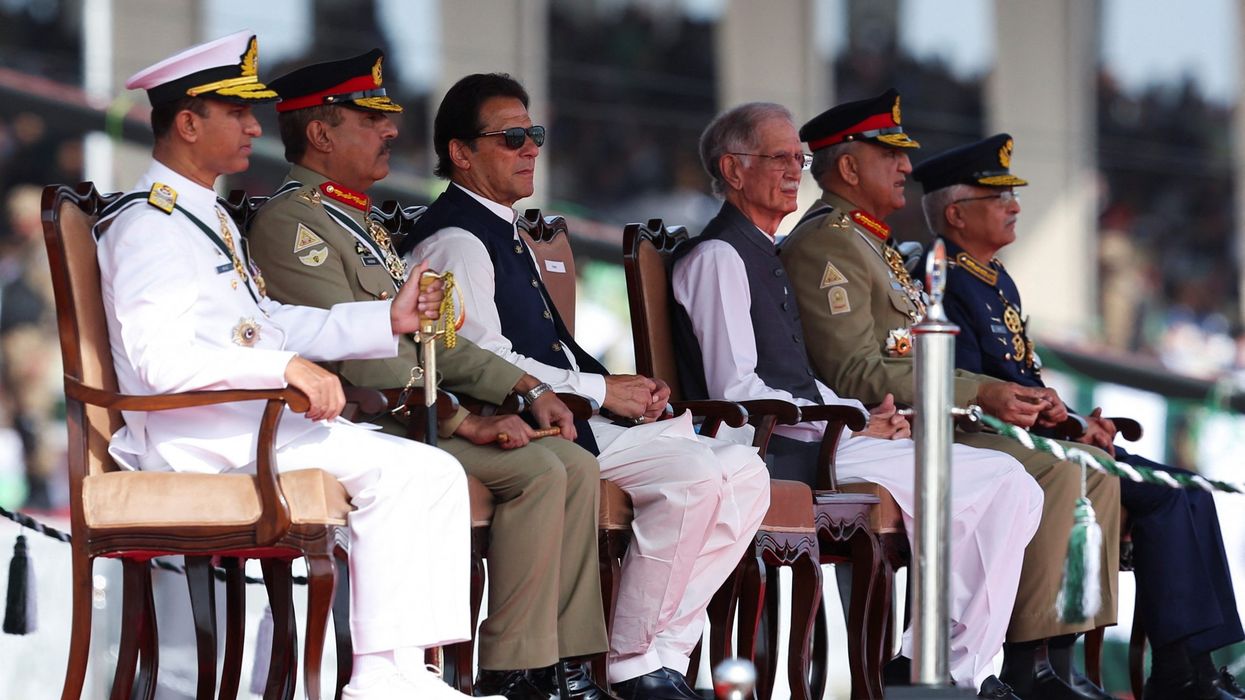THE SPEAKER of Pakistan's parliament adjourned a motion of no-confidence in prime minister Imran Khan on Friday (25), provoking opposition accusations he was buying time for the ex-cricketer to muster support after a spate of defections from his party.
The motion will now be tabled on Monday (28) after which seven days of debate should take place before an actual vote.
The political turmoil comes as Pakistan faces a recurring economic crisis, and Khan's government is banking on the International Monetary Fund to release the next tranche of a $6 billion (£4.55 bn) rescue package to shore up dwindling foreign currency reserves.
Khan, a former captain of Pakistan's national cricket team, came to power in 2018, after the leaders of the country's two mainstream parties were discredited by accusations of corruption.
Political analysts say the country's powerful military had supported Khan's rise to power, and that the generals have now become disenchanted with his leadership. Khan has denied receiving backing from the military.
During the latest power struggle, the military has said it would remain neutral, leaving it to political parties to decide Khan's fate.
Opposition leader Shehbaz Sharif, from the Pakistan Muslim League-Nawaz, took aim at Asad Qaisar, the speaker of the lower house, for adjourning the no-confidence proceedings until after the weekend.
"We strongly protest it," Sharif told a news conference on Friday.
Bilawal Bhutto Zardari, leader of the rival Pakistan People's Party, described the speaker as acting like a "personal servant" of the prime minister.
The speaker said in a live telecast that he adjourned the proceedings to conform with a longstanding tradition to refrain from carrying out parliamentary business on the first day of a session convened shortly after the death of an MP.
In recent weeks, more than 20 lawmakers deserted Khan, leaving him short of the minimum 172 that he needs for a simple majority in parliament. Political analysts expect Khan's supporters to use the weekend to persuade some of the turncoats to return to the fold.
Meanwhile, an IMF review that was scheduled for this week has yet to happen, and undermined by political uncertainty the rupee remains under pressure, with the central bank's foreign currency reserves having fallen to $14.9 bn (£11.30 bn) as of March 18.
(Reuters)
No-trust motion against Imran Khan delayed till Monday




